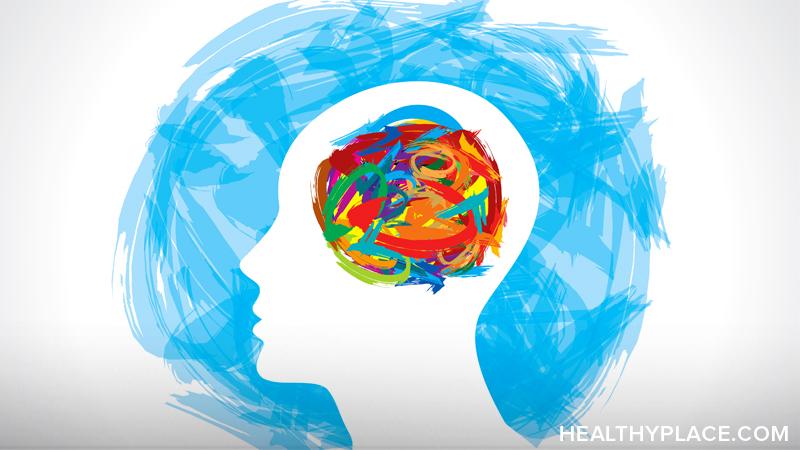Autism vs. Childhood Mental Illness
 Many childhood mental illnesses involve behaviors similar to those found in autism spectrum disorder (ASD), commonly just referred to as "autism." As a result, parents may hear the term "autism" mentioned when their child first exhibits worrisome behaviors. This first post on autism will look at the similarities and differences between autism spectrum disorder and childhood mental illness, as seen from a parent's perspective.
Many childhood mental illnesses involve behaviors similar to those found in autism spectrum disorder (ASD), commonly just referred to as "autism." As a result, parents may hear the term "autism" mentioned when their child first exhibits worrisome behaviors. This first post on autism will look at the similarities and differences between autism spectrum disorder and childhood mental illness, as seen from a parent's perspective.
Autism Spectrum Disorder (ASD) Symptoms
While there is some controversy around it, autism spectrum disorder is just that, a disorder, whereas mental illnesses include things like pediatric depression or attention-deficit/hyperactivity disorder (ADHD).
In terms of "high-functioning" autism, the most well-known symptom is impaired social functioning (ASD Signs, Symptoms, and Diagnosis). This typically starts with the delayed development of speech and limited interaction with others. As they grow older, these children may have difficulty expressing and interpreting emotion and difficulty maintaining eye contact. They are concrete thinkers, not always understanding figures of speech. They may show a preference for objects over people and obsess over esoteric topics. While severe autism is correlated with lower intelligence quotient (IQ), "high-functioning" individuals tend to have average IQs, or above-average when it comes to Asperger's syndrome (on the milder side of the autism spectrum).
Differences Between Autism vs. Childhood Mental Illness
It's not clear what causes autism, but the general consensus is that something occurs in-utero and/or genetically. This is why it's labeled a "pervasive developmental disorder" (though please keep in mind that autistic people may not look at it as a disorder). Genetics play a role in some mental illnesses, too, but the environment plays a major role as well. For instance, posttraumatic stress disorder and depression can both occur in previously mentally healthy children following traumatic events. Environmental factors will not, meanwhile, trigger autism in an otherwise neurotypical child.
In addition, children with mental illness are generally capable of picking up social cues. Those cues are simply distorted by their illnesses. They may be too anxious around other people to look them in the eye, as opposed to ASD where eye contact may be overstimulating or painful. Hyperactive children like my son can't control their energy levels, but they catch the cues from kids who are annoyed by that energy. Autistic children, meanwhile, may not notice how other children respond to repetitive behaviors.
Similarities Between Autism and Other Childhood Mental Illnesses
My son has significant anxiety, so one of the major things he shares with ASD is rigid thinking. Anxiety demands the comfort of predictability, so change causes him distress. Like autistic children, then, transitions are rough for him. A change from one classroom to another or an abrupt cancellation of plans may result in an angry outburst.
Sensory issues also occur in ASD and other childhood mental illnesses. Symptoms of attention-deficit/hyperactivity disorder, for instance, include distractibility, and sounds are a huge distraction to my son. He can hear gum chewing or a pencil tapping from across a classroom, breaking his already-tenuous focus. As he grows more agitated, touch then becomes painful. Most parents try to hug their distressed child. Mine screams and hits if I try to touch him when he's agitated.
Similarly, with autism spectrum disorder, every sound may have equal intensity, from a mosquito to a train whistle. The clash of opposite colors may hurt their eyes the way the sun hurts mine. While the reasons behind sensory sensitivity may differ between ASD and mental illnesses, outwardly, the response is the same: outbursts, isolation, and other behaviors that worry parents. These children are also equally unable to describe what's happening. All parents, then, react similarly: we look for help.
Next week, I'll discuss what help may look like for autism vs. mental illness and how it affects us as parents. I will delve into the differences parents encounter in how schools, providers, and society respond to the two types of disorders.
APA Reference
David, M.
(2017, June 5). Autism vs. Childhood Mental Illness, HealthyPlace. Retrieved
on 2025, November 22 from https://www.healthyplace.com/blogs/parentingchildwithmentalillness/2017/06/autism-vs-childhood-mental-illness
Author: Melissa David
Children with autism, not Autistic children. Language is important, in terms of helping people to separate themselves and others from disorders or diagnoses.
Thank your for the comment! I usually use person-first language. However, when running this article past my friends in the autism community, it appears person-first language is controversial. Many prefer "autistic children" or similar because they see autism as who they are and not a disorder from which they suffer. I feel like the language, in this instance, belongs to the people who wear the label. So whatever works for each individual works for me! My article simply followed the request of a particular set of individuals.